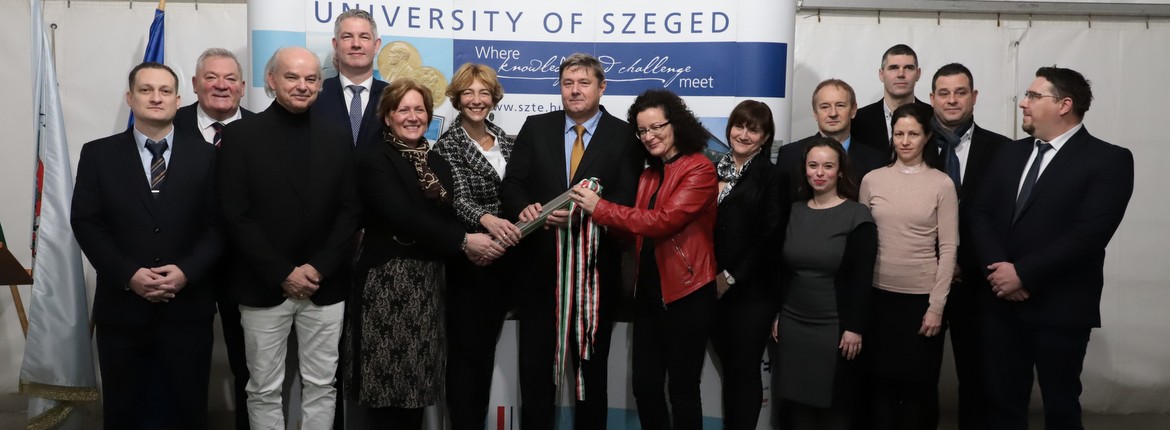
A new biobank building investment to be finished in spring 2020 will satisfy the biological sample storage capacity needs of the University. A fully robotised automatic sample container worth of 3 billion HUF will be placed in the building. Owing to this investment and the accession to Biobanking and BioMolecular Resources Research Infrastructure – European Research Infrastructure Consortium, one of the most important requirements of personalized medicine and of a more effective oncology research and other therapeutic developments will be fulfilled.
The University of Szeged joined an infrastructural network system monitoring biobanking activities called Biobanking and BioMolecular Resources Research Infrastructure – European Research Infrastructure Consortium (BBMRI-ERIC) as the first in Hungary. A Memorandum of Understanding about the accession was signed by Prof. Dr. László Rovó, Rector and Dr. Judit Fendler, Chancellor of the University of Szeged as well as by Erik Steinfelder, General Director of BBMRI-ERIC.
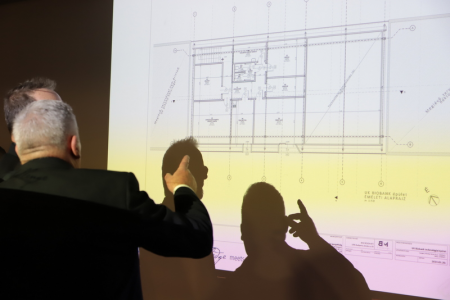
‘The collection and storage of biological samples has a past of 75 years in our institution. These samples are used for educational and research purposes as well as for clinical, biomedical and physiological research over generations’ said Prof. Dr. László Rovó, Rector of the SZTE. He added that in order to meet international standards, improvements aiming professional, infrastructural and quality management development related to biobanking activities have recently been launched at the University.
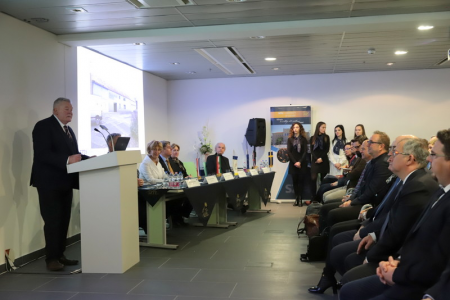
‘BBMRI-ERIC currently includes 20 member countries. Both in terms of size and efficiency, it is one of the largest European research infrastructure’ said Erik Steinfelder, General Director of BBMRI-ERIC. He emphasized that Hungary is not a member country yet, however, based on the developments and scientific achievements that has been conducted in Szeged, the organization decided to provide direct accession to the University of Szeged as the only institution.
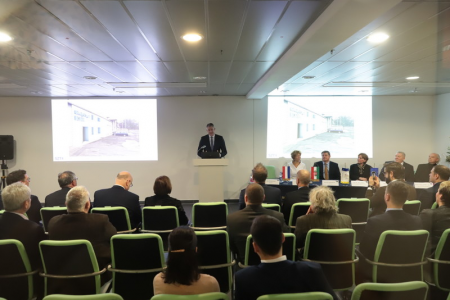
A further professional recognition is the fact that the project gained the support of a leading European cancer research agency called European Cancer Moonshot Lund Center. With regard to the high-quality and potential of educational, educational, healthcare and R&D activities, Spartacus Cancer Foundation donated a world-class, modern and fully robotised automatic sample container to the University of Szeged. This device worth of 3 billion HUF has a storage capacity of 19 million samples.
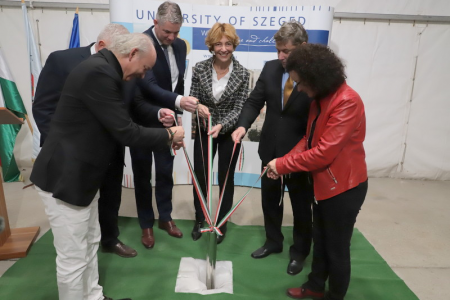
This new device will be placed in the biobank to be established at the University of Szeged, of which the foundation stone was laid on the 21st January 2020 by Dr. Zita Horváth, Deputy Secretary of State for higher education, Prof. Dr. László Rovó, Rector of the University of Szeged, Dr. Judit Fendler, Chancellor of the University of Szeged, Mr. Eric Steinfelder, General Director for BBMRI-ERIC, Mr. John Les Corps, founding member of Spartacus Cancer Foundation and Prof. Dr. György Markó-Varga, head of European Cancer Moonshot Lund Center.
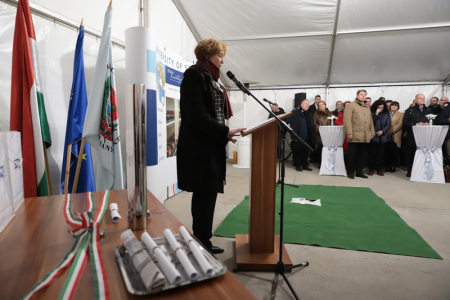
‘With our accession to BBMRI-ERIC and with the support of the European Cancer Moonshot Lund Center, several large-scale international R&D projects as well as EU funds have become accessible to the University of Szeged’ said Dr. Judit Fendler, Chancellor of the University of Szeged. She emphasized that owing to the biobank to be established and the support of international professional organizations, we will strengthen our international relations and our role at the European University Alliance for Global Health project. Also, this particular investment supports the Hungarian Centre of Excellence for Molecular Medicine, theoretical and clinical research groups, the Biological Research Center of Szeged and other academic work packages, both in terms of professionalism and infrastructure.
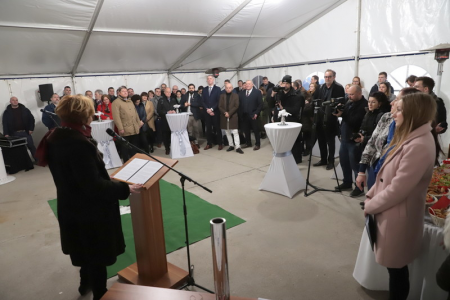
’The University of Szeged has a prominent place on the radar of the Hungarian and European higher education, as a result the biobank to be established here will have a significant effect on the Hungarian higher education’ said Dr. Zita Horváth, Deputy Secretary of State for higher education. She also pointed out that the establishment of the biobanking facility proves that a significant scientific work is being conducted at the University of Szeged that is acknowledged and supported by international organizations. This investment promotes the initiative of the Ministry for Innovation and Technology to increase the role of higher education institutions as innovation and knowledge centers as well, namely that universities carry out educational activities, provide research and health services at the same time.
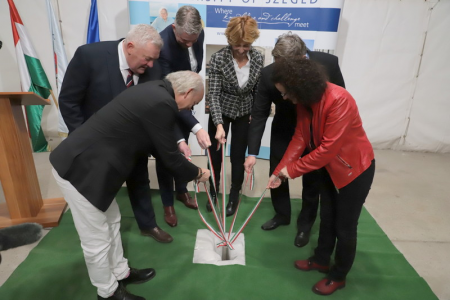
The biobank to be established at the University of Szeged complemented with the modern sample container will satisfy the biological sample storage capacity needs of the University in the upcoming decades. With the accession to BBMRI-ERIC the University of Szeged is provided with the opportunity the University of Szeged to become a leading biobank of Hungary and the region as well. With the installation of the biobank, one of the most important requirements of personalized medicine, better health care, early diagnose of diseases, a more effective oncology research and other therapeutic developments will be fulfilled at the University of Szeged.
SZTEinfo
Fotó- Bobkó Anna

